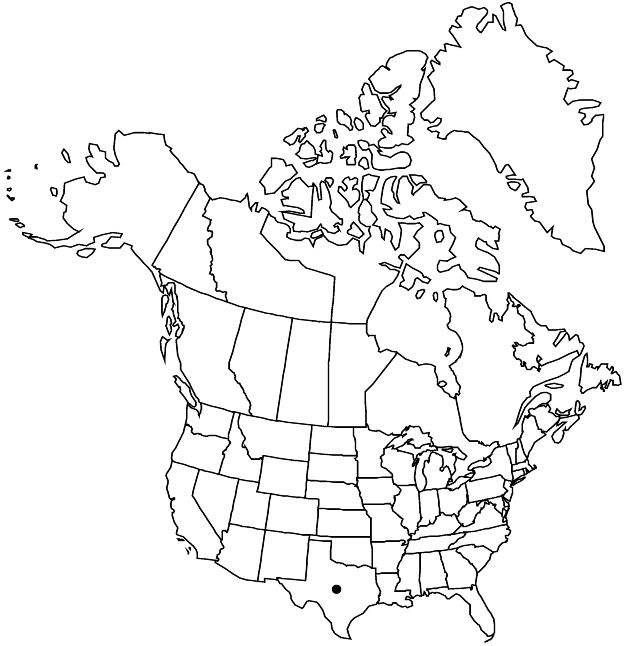Mentzelia lindheimeri
Nova Acta. Acad. Caes. Leop.-Carol. German. Nat. Cur. 76: 54. 1900.
Plants perennial, with caudices. Stems erect to decumbent or clambering, to 50 cm. Leaves: petiole to 35 mm; blade usually hastate to ovate, sometimes smallest distal elliptic, basally lobed or unlobed, to 12 × 7.5 cm, base truncate to obtusely cuneate, margins serrate, dentate, or crenulate, apex acute. Pedicels (fruiting) 1–5 × less than 1 mm. Flowers: petals yellow to orange, 6.5–17 × 4–9.5 mm, apex cuspidate, hairy on apex and abaxially near apex; stamens (10–)20–45, 5–12(–20) mm, filaments monomorphic, filiform; style 3.5–13 mm. Capsules usually clavate to funnelform, sometimes slightly ovoid, 8–18 × 3.3–4.5 mm, base rounded or cuneate, capsule and pedicel well-differentiated. Seeds (4–)5–10 per capsule, pyriform, without transverse folds. 2n = 20.
Phenology: Flowering Feb–Nov.
Habitat: Sand flats, dunes, coastal mud flats, limestone gravels or faces.
Elevation: 10–130(–2000) m.
Discussion
As with most species of sect. Mentzelia first described by Urban and Gilg, the delimitation of M. lindheimeri has not been well understood. Phylogenetic results indicate that populations consistent with the types of M. lindheimeri and M. texana are part of a clade restricted to Gulf coastal areas from Florida to northeastern Mexico that also includes M. floridana and M. gracilis. Populations consistent with the M. lindheimeri and M. texana types overlap, and we treat M. texana as a synonym of the former. Mentzelia lindheimeri as treated here is restricted mostly to subtropical southeastern Texas. It is rare in trans-Pecos Texas, although we identified populations of M. lindheimeri in the Davis Mountains. Texas collections annotated as M. incisa Urban & Gilg by Thompson and Zavortink, which served as the basis for Texas reports of that species (for example, D. S. Correll and M. C. Johnston 1970; B. L. Turner et al. 2003) are treated here as M. lindheimeri.
Selected References
None.
